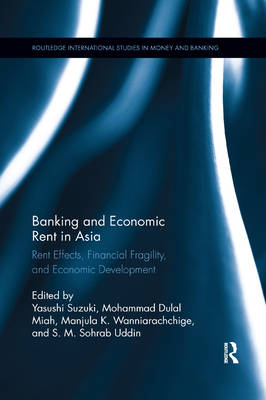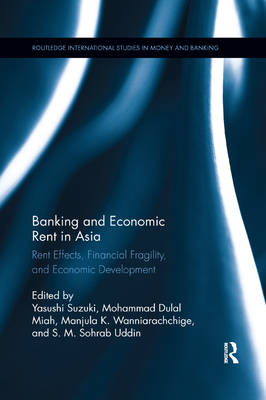
- Retrait gratuit dans votre magasin Club
- 7.000.000 titres dans notre catalogue
- Payer en toute sécurité
- Toujours un magasin près de chez vous
- Retrait gratuit dans votre magasin Club
- 7.000.000 titres dans notre catalogue
- Payer en toute sécurité
- Toujours un magasin près de chez vous
Banking and Economic Rent in Asia
Rent Effects, Financial Fragility, and Economic Development
Description
A stable and sound financial system plays a critical role in mediating funds from surplus units to investors, making it a prerequisite for economic development. Financial intermediaries have been vulnerable to adverse changes in the local and global economy and experienced frequent bubble-and-bust episodes historically. Analyses of financial crises reveal that the incentive created by neo-liberal financial principles is inconsistent with stable financial systems, and viable solutions require structuring institutions in a way that incentives are well aligned with the fundamental principles of financial systems.
By drawing on the theoretical framework of the financial restraint model, this book analyses financial sectors' rents or bank rents and their effects on banks' performance and stability, and presents evidence on the relationship between rent and incentive through case studies of both developed and developing countries.
Spécifications
Parties prenantes
- Editeur:
Contenu
- Nombre de pages :
- 204
- Langue:
- Anglais
- Collection :
Caractéristiques
- EAN:
- 9780367350567
- Date de parution :
- 05-06-19
- Format:
- Livre broché
- Format numérique:
- Trade paperback (VS)
- Dimensions :
- 155 mm x 234 mm
- Poids :
- 317 g






